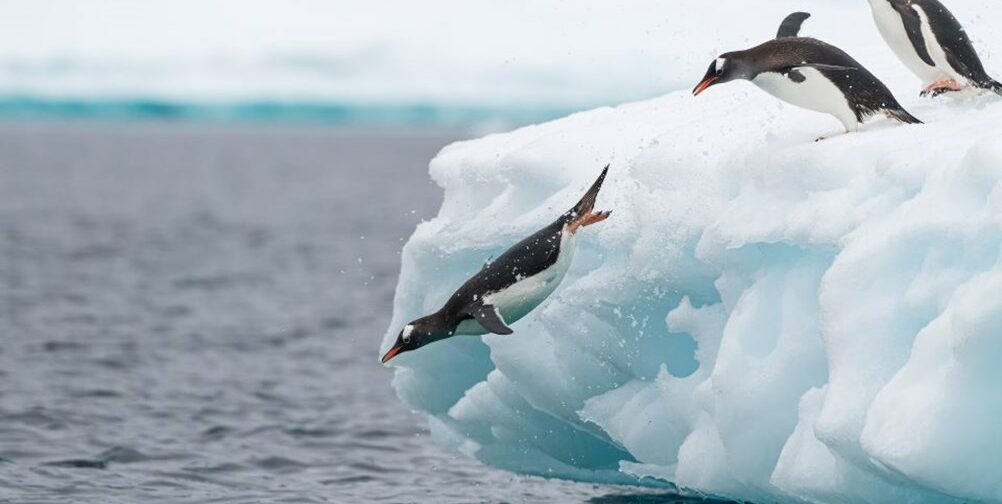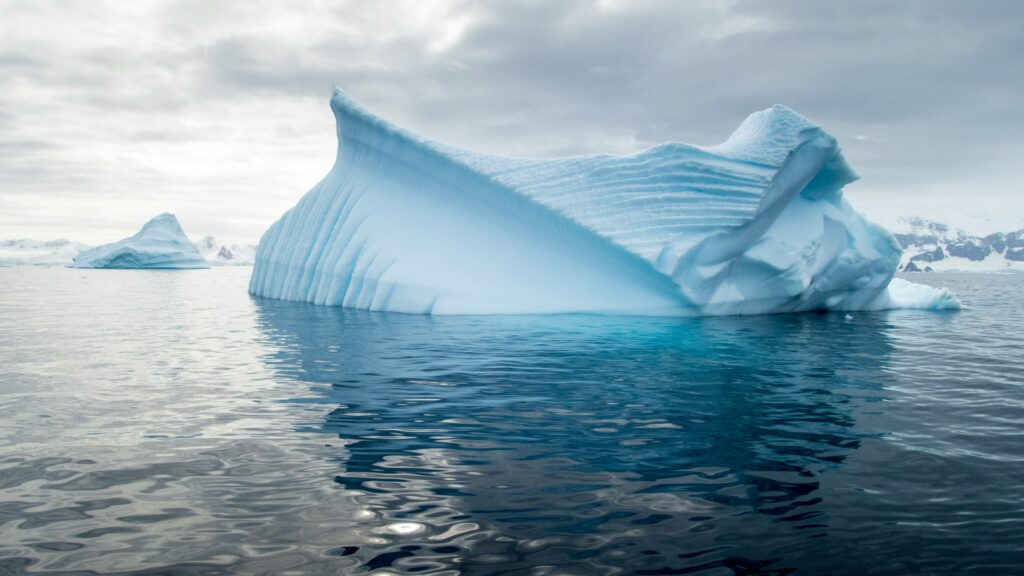Guess what? Discover magazine has discovered Antarctica melted again. It’s all over but the drowning: “Gigantic Expanse of Sea Ice Breaks Free From Antarctica and Disintegrates”. Willis Eschenbach may comment irritably that “In the winter, the Antarctic sea ice covers about 8 million square miles. In the summer, about 7 million square miles breaks off, disintegrates, and melts.” But never mind because, Discover pants, “The breakup — which will probably speed the flow of glacial ice into the sea — is yet another sign of what’s to come as the climate warms further… in just a few days, warm winds racing down from the [Antarctic] peninsula's mountains delivered a death blow.”
It seems that “death blow”, like “ravaged’, is another term that does not mean what it used to. But rhetorical heating is a clear problem in this area. And the story contains such overcooked prose as “An expanse of sea ice more than three times the size of New York City has torn free from Antarctica and broken up in dramatic fashion. For 11 years, in one of the fastest warming regions on Earth, the 1,000-square-mile sheet of floating ice had tenaciously held fast to the coastline of the Antarctic Peninsula.”
Tenacious. Brave ice. But then… a murder! But the death blow was mainly to the story’s own credibility. It seems this one is another in what NASA called “a series of notable events”, perhaps a nod to Lemony Snicket, of which the most notable was “the splintering and collapse in 2002 of a larger and far thicker floating slab of ice extending from the land’s surface. Called the Larsen B Ice Shelf, it was more than a half mile thick in places. Scientists had never before witnessed such a large and robust ice shelf disintegrate so rapidly. And so the event nearly 20 years ago made headlines around the world, with The Guardian proclaiming, ‘Antarctica sends 500 billion tonne warning of the effects of global warming.’”
Um yeah. But it was nearly 20 years ago and hasn’t repeated, so it was a warning of the effects that didn’t keep happening, as global warming hit hard two decades ago then apparently retired or something. The story tenaciously hangs on with words like “dumping” and “astonishing” and “persevered” and even “burlier”, along with “steadfast” and “ominous”. We even got an “atmospheric river”. The only thing missing was a corpse, that of Antarctic ice.
Over at NoTricksZone, Pierre Gosselin observes that new data from the Japan Meteorological Agency shows no January warming in Sweden or Ireland since 1988. And if you’re wondering why the JMA, well, measuring warming is global even if the actual warming isn’t. But we digress because… he also notes that a plot of Antarctic sea ice from another source we recommend, Ole Humlum’s Climate4you, shows absolutely no trend in Antarctic sea ice since 1978. None at all.
Here we must make a rather pointed observation, in keeping with our general practice of making rather pointed observations. It is that once upon a time climate alarmists said some terrible things were going to happen if humans kept cranking out certain gases. After a while they started saying those things were happening. But they are not. With very few exceptions alarmist predictions, from the demise of polar bears to Arctic ice to the snows of Kilimanjaro to the crops, have themselves perished ignominiously.
If they want to go back to saying the Antarctic will melt, and the proof is that it hasn’t yet, we’ll have to have a bit of a debate about the problem of evidence. And in fact the story we started with is very much in that category, with the subhed being “The breakup — which will probably speed the flow of glacial ice into the sea — is yet another sign of what’s to come as the climate warms further.” The “probably” is probably speculation disguised as finding. But is this a story about something that happened, or something that’s going to? The distinction matters. And actually “yet another sign of what’s to come as the climate warms further” is egregious bait-and-switch, because a “sign of what’s to come” is evidence without being evidence, something that’s going to happen that just did but not in a happened way. As for “yet another”, well, what are the others?
So right now the problem is the lack of evidence, and it’s generally agreed that a theory for which there is no evidence is a bad theory.



Was it really sea ice? If so, as we all know from observing melting ice in our favorite beverage, the liquid level does not change as the ice melts, unless of course one is drinking. Sea ice melting does not contribute to a rise in the level of anything. Maybe CDN could point this fact out in articles such as this.
Had an interesting 'discussion' (he was rude, I was not) on anti-social media with an alarumista who couldn't understand that water below 4 degrees Celsius - frequently the case with melting ice - actually gets smaller as it warms; why icebergs float of course. It sinks down in the water column, which is why fish don't freeze at the bottom of ponds. So, melting ice causes sea level to decrease ever so slightly, rather than the increase obvious on the face of it.